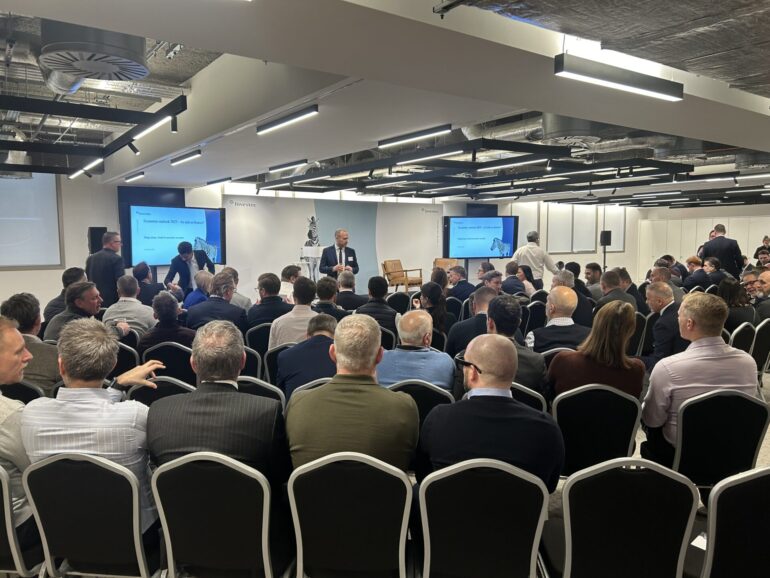The UK economy is facing challenges due to potential US tariffs teased by President Donald Trump, as well as ongoing interest rate fluctuations, according to Philip Shaw, chief economist at Investec.
At an exclusive event hosted by Investec on 23rd January 2025, Shaw pointed out that as yet uncertain policies from the Trump administration, especially tariffs on imports, could raise concerns for the UK economy.
However, Trump’s potential changes will likely not be as drastic as expected.
Shaw said: “Trump has been saying that tariffs are necessary due to unfair competition and frequently talks about imposing them.
“He’s mentioned extreme tariffs, like a 60% one on Chinese goods, which would significantly increase prices for [American] consumers.
“However, we doubt he’ll go ahead with such drastic measures.”
Shaw added: “We assume a baseline of a 10% tariff on goods, not services, from every country.
“While some believe this will raise inflation in the UK, it’s more likely to reduce inflation as exporters adjust, leading to downward pressure on prices.
“Markets usually don’t like this because tariffs are bad for the global economy by reducing free trade and economic growth.”
He said: “Markets worry that extending tax cuts will increase the deficit and debt, potentially adding a trillion dollars to US debt by 2035.
“We think he’ll use tariffs as leverage but won’t push for extreme increases.
“Why is this important? Because what happens in the US affects their borrowing costs, which, in turn, impacts mortgage rates here in the UK, especially long-term fixed rates.”
Shaw also commented on how US interest rate changes might impact UK gilt yields.
He said: “How are gilt yields affected? Well, they’re obviously affected by UK factors, inflation, the creditworthiness of the Government, but we live in a global marketplace, and gilt yields and other European government borrowing costs are very much affected by the borrowing costs in the US, and that is a treasury bond yield.
“So that leaves us very exposed to the US market and what President Trump might want to do, or might not want to do.
“And of course, the usual factors such as Federal Reserve interest rates and monetary policy generally.”
This volatility has increased uncertainty and put pressure on UK businesses already dealing with financial problems.
Research found that the UK economy was close to recession late in 2024, and GDP flatlined in Q3 2024, possibly decreasing slightly in Q4.
Shaw said that the slowdown was due to global issues and higher national insurance contributions for employers.
He said: “One of the factors is that global manufacturing is struggling.
“Our European neighbours are finding life even more difficult than we are, although some are doing quite well.
“The employers’ increases in National Insurance after the Budget really have not helped business confidence.”
Peter Izard, head of intermediary business development at Investec, conducted a poll where 90% of attendees believed their businesses would grow in the next 12 months, despite these uncertain economic conditions.
Shaw said: “So the question I get asked a lot is; is the UK economy now heading into a recession?
“Are things going to get worse in 2025?
“I’m very pleased to say I don’t think that’s going to happen.
“The outlook is uncertain, but our base case is that you should see the economy beginning to grow a bit more strongly again over this year.”




